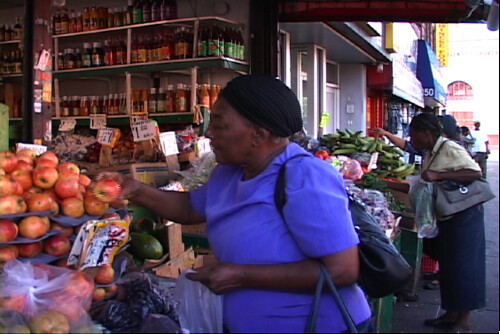In Flatbush, Brooklyn, home to the largest Haitian population in New York, many Haitian immigrants are reluctant to apply for temporary protected status, offered to them following the January 12, 2010 earthquake in Haiti and allowing them to legally work in the United States, citing fears about possible deportation after the status expires.
“It gives an opportunity to work, which we need because we can’t go back to Haiti and we need to survive,” said a Haitian woman, who did not want to be identified because of her temporary status, who is now putting herself through college by baby-sitting and works at a non-profit organization in Flatbush. “We can’t just take to the streets. But a lot of Haitians are afraid of applying for it. They feel that before they weren’t living in the spotlight. Now whenever the government decides ‘hey, it’s over,’ they know they’re at risk of being deported. That’s the fear—others knowing they’re here.”
Many Haitians in Flatbush have opted to claim protected status; approximately 50,000 Haitian immigrants are now legally working under the special status, according to Bob D’Meza, attorney at D’Meza Law Firm, which works with the Haitian community on immigration issues. Temporary protected status, which blocks deportation and allows the immigrants a social security number and work permit, lets new workers find jobs and authorizes previously undocumented workers to now establish legal rights. For Haitian immigrants who were living in New York before the earthquake, temporary protected status lasts until July 22, 2011, prompting some to question, how solid are these privileges if they can later be revoked?
The hot debate swelling around temporary protected status emphasizes the measure’s benefits and setbacks for immigrant workers hoping to assimilate. According to Ninaj Raoul, Executive Director of Haitian Women for Haitian Refugees (HWHR), the primary benefit of the special status is that it allows undocumented immigrants, who may have been working for years, to become legal. With this permission, immigrants can battle exploitation often faced by undocumented workers, such as long hours, no vacation time, low pay, isolated work environments, and abuse. “Domestic workers have little control over their schedules and an isolated work environment so they can’t organize,” Raoul said, “and all the undocumented workers in restaurants that I know work 12 hour days, 6 days a week.”
Yet Raoul and many others worry that with the temporary protected status, the government is allowing Haitians to establish lives in the United States only to withdraw their legal rights in the future. “It’s brainwashing: we’re going to give you a job, but temporarily,” Herve Estime, a Haitian Flatbush resident, said. “Sure, someone might be babysitting and that’s not stable, so they’ll probably take a better job for a year if they can. But that might be taken away. If you’re going to give me something, give it to me right. Don’t give me a fish; give me the equipment, and I’ll provide for myself and my family.”
Advocates of immigrant workers’ rights see legislation as the key tool in empowerment; yet the question lingers of whether structural transformation will occur. Raoul and other members of HWHR are mobilizing Haitian workers to pressure legislators through language programs that include ESL classes and youth interpreters. “I could speak for them,” Raoul says, “if they can go in and tell their own stories to lawmakers, it’s a lot more compelling.”
Changes in legislation prompted by temporary protected status could offer an opening for Haitian immigrants to assimilate, according to D’Meza, if the status is renewed in upcoming years and the administration reforms U.S. immigration policy. “Temporary protected status lightens the burden,” D’Meza said. “It’s not a solution. People are still hurting, and their statuses are going in and out. That’s just how it works. Something positive may happen for Haitians, and for undocumented workers overall. We’ll see, depending on the nature of the government and what it decides to do.”
PHOTO: 200,000 Haitians have developed new lives in Brooklyn, where their businesses, bakeries, and shops lining Flatbush Avenue form “Little Haiti” (2000 Census).

